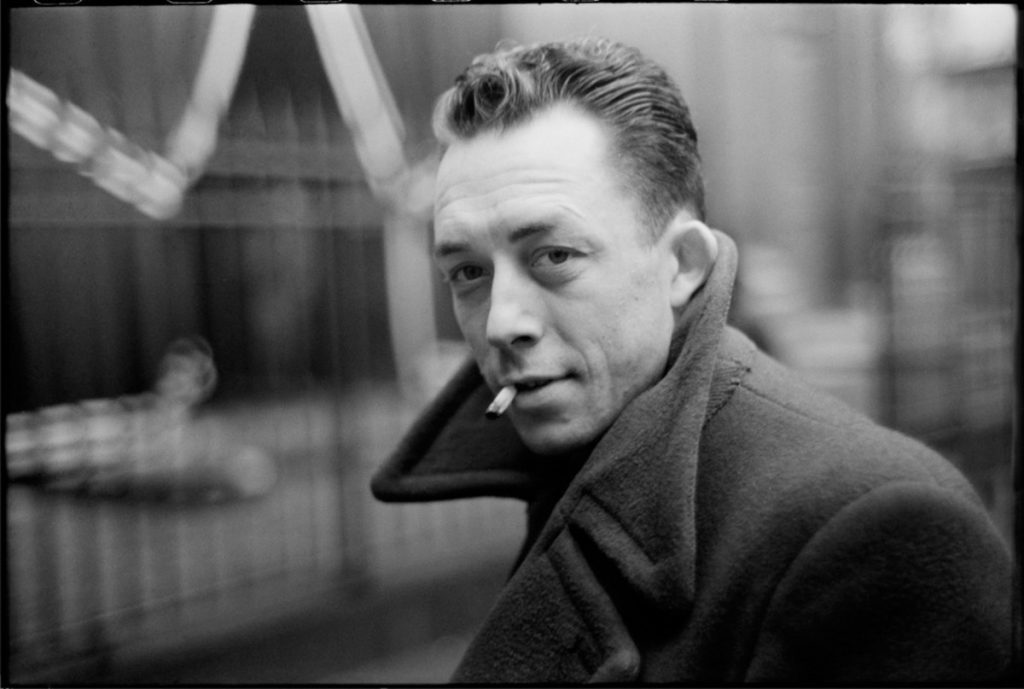
When I’m sad, I get up and go around the world — Tomaž Šalamun
Why should I feel lonely? — Henry David Thoreau
The streets are covered in shadows. The orange cat of sun slinks through the city, crawling between the crevices and alleyways as though she is filling up the empty spaces between buildings with the paintbrush of her tail – whisking day away, ushering in night. A chill breeze pushes fallen leaves out from their corners; they spin in disarray like small, urban tornados. A few months ago, the streets were packed, humid, sweltering with the busy breath of activity – now they are quiet, cold, and getting ready to welcome home winter’s ghosts. That familiar feeling appears again, like an old coat you realize has been hanging on the same peg all year. Another summer has left, and another autumn is now approaching. It has been this way for many years, and you, standing on the bridge of another season, watch the sun sink futilely below the horizon. What is this unsettling despair? With the changing seasons, we are reminded of how we pass through this world and how this world passes through us, briefly touching. As fall lays the final knife in the heart of summer, here comes our reckoning – with each changing season, we are getting further away from the person we used to be, until our death, cycling through the seasons of life like strangers.
Existentialism- defined and explored by philosophers such as Kierkegaard, Nietzsche, and Sartre – is an inquiry into the absurdness and crisis of human existence. Or, as Charles Glicksberg writes in his 1948 article “The Literature of Existentialism” for the journal Prairie Schooner, “It is not a philosophy but a state of mind, a state of intolerable contradiction, alternating erratically between extremes of hope and despair, radical skepticism and faith, ‘death’ and ‘rebirth.’ It is this very fact of stubborn paradox that constitutes existence. What man feels is always the fugitive moment, this bubbling moment on the river of time, never the vision of eternity.” To think existentially is to suffer in the dissonance between meaning and its absence, and to not only suffer but to scratch out a palpable existence.
We find these ideas of death and rebirth mirrored in our interactions with the natural world and the seasons. The eyeless fish washed ashore, the deer caught bounding through the parking lot, the brown grass in our front yard, the smell of lilac bushes and yellow daffodils. Our modern conveniences make it easy to forget how subjected we are to the processes of nature and how powerless we are to its change. Before we had the great distractions that glow in our pockets or the big screens that dominate our living rooms, our interactions with the natural world were much more frequent and more productive. Yes, we still float in this confusing soup of matter, but we do not have as many tools to distance ourselves. It was much easier to be quiet, reflective, and rotate gently with the world. As Thoreau writes in Walden and Civil Disobedience, “Let us first be as simple and well as Nature ourselves.”
When we can sit confidently in the puddle of our uncertainty, fall loses its foreboding, and winter becomes another good excuse to bundle up. When we realize we are most likely sitting, as Glicksberg says, in a “moment on the river of time,” does this river become enjoyable; does this moment become a sun-warmed rock. Practice the Taoist art of letting go, that the world offers you no favors; the seasons of your life will pass by inevitably, and maybe favorably, if you are willing.
Albert Camus, the prominent 20th-century French Existentialist, captures the moment of acceptance perfectly in his keystone novella The Stranger. The protagonist, Meursault, spends his time brooding on the absurdities of life before he is sent to the guillotine for killing someone senselessly. There is an intense gravity, but also ambivalence, in this fatal action, “Then I fired four more times at the motionless body where the bullets lodged without leaving a trace. And it was like knocking four quick times on the door of unhappiness.” As he struggles through the novella to find a means to an end, he has a moment where he relinquishes control-“I looked up at the mass of signs and stars in the night sky and laid myself open for the first time to the benign indifference of the world.”
I was sitting on the couch with a friend, talking about belief in a higher power and how it might be the possible solution for a lifetime of melancholy. If you can believe with blind faith that there will be a worthwhile answer, then will the existential crisis of your fall cease? We realized then that those of us who can’t are all screwed – so how about this … let us, like Meursault, put that idea of blind faith in the tangible world, its absurdities, its idiosyncrasies; let us treat it as a beautiful little nugget we have the pleasure to roll around on, at least for a while. And seek comfort in those moments of solitude, without our screens, when it is just us and the company of all our strangers. Or as Thoreau muses in Walden, “I have, as it were, my own sun and moon and stars, and a little world all to myself.” •
Photo: Albert Camus. Henri Cartier-Bresson / Magnum


